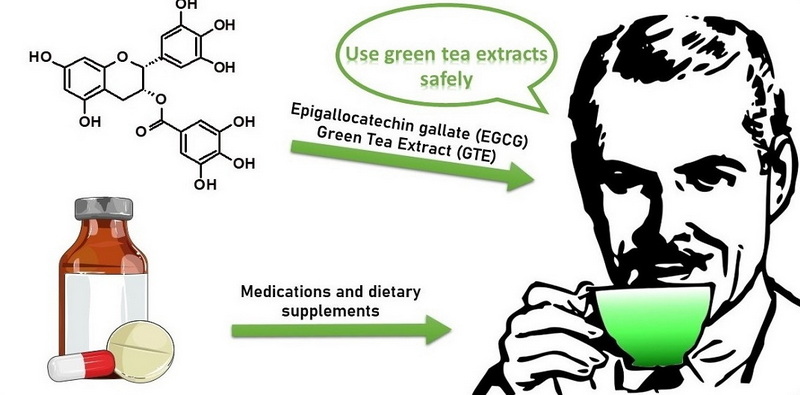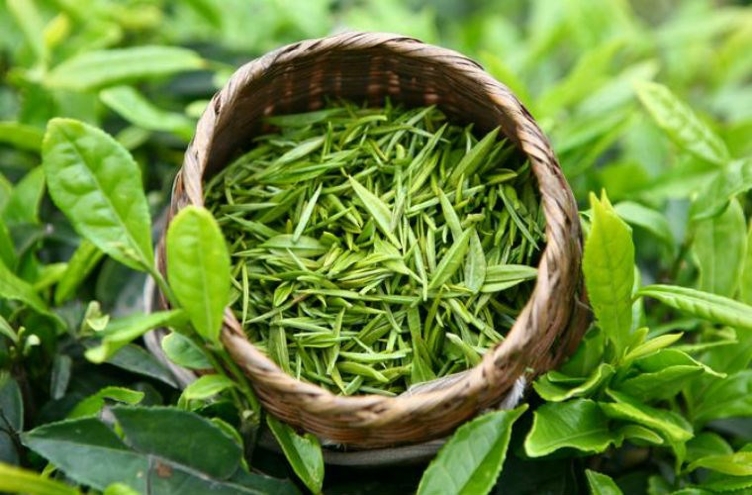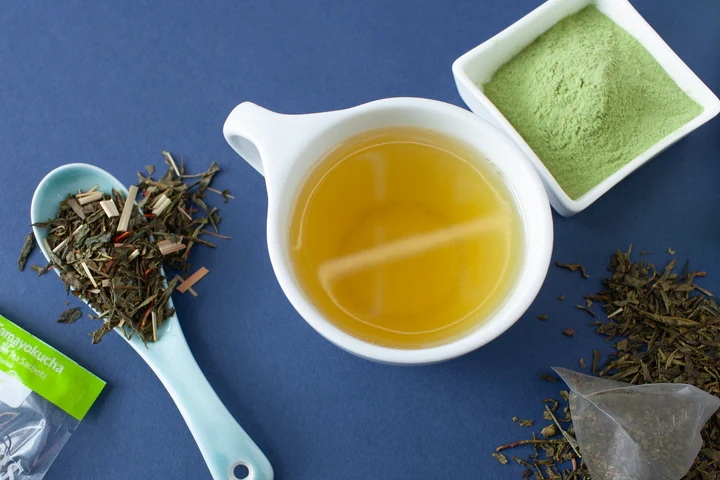Content Menu
● Understanding Green Tea Extract
● The Role of EGCG
● Case Studies and Reports
● Risk Factors for Liver Damage
● Mechanisms Behind Liver Toxicity
>> 1. Metabolic Activation
>> 2. Inflammatory Response
>> 3. Apoptosis
● Regulatory Perspectives
● Consumer Awareness and Recommendations
● The Importance of Research
● Conclusion
● FAQ
>> 1. What are the symptoms of liver damage from green tea extract?
>> 2. How much green tea extract is considered safe?
>> 3. Can everyone take green tea extract safely?
>> 4. What should I do if I experience symptoms after taking green tea extract?
>> 5. Are there any regulations on green tea supplements?
● Citations:
Green tea has long been celebrated for its health benefits, particularly due to its high concentration of antioxidants, especially catechins. Among these, epigallocatechin gallate (EGCG) is the most studied and is often touted for its potential protective effects against various diseases, including cancer and cardiovascular issues. However, recent studies have raised concerns about the safety of concentrated green tea extracts, particularly regarding liver health. This article explores the components of green tea extract that may lead to liver problems, focusing on the implications of EGCG and other factors.

Understanding Green Tea Extract
Green tea extract is derived from the leaves of Camellia sinensis and is available in various forms, including capsules, powders, and liquids. It is commonly used as a dietary supplement for weight loss and overall health improvement. The primary active compounds in green tea include:
- Catechins: A type of antioxidant with several health benefits.
- Caffeine: Provides a mild stimulant effect.
- Theanine: An amino acid that may promote relaxation.
While moderate consumption of brewed green tea is generally considered safe, concentrated extracts can pose risks.
The Role of EGCG
EGCG is the most abundant catechin in green tea and is often credited with its health benefits. However, high doses of EGCG have been linked to hepatotoxicity (liver toxicity). Research indicates that individuals consuming large amounts of green tea extract may experience liver damage due to several mechanisms:
1. Oxidative Stress: High doses of EGCG can lead to increased production of reactive oxygen species (ROS), which can damage liver cells.
2. Mitochondrial Dysfunction: EGCG has been shown to disrupt mitochondrial membranes, leading to cell death.
3. Genetic Variability: Certain genetic factors can predispose individuals to liver damage when consuming EGCG. Variants in genes such as UGT1A4 affect how the body metabolizes EGCG, leading to increased liver stress in susceptible individuals.
Case Studies and Reports
Numerous case reports have documented instances of acute liver injury associated with green tea extract:
- A case study highlighted a 24-year-old woman who developed acute liver injury after receiving intravenous green tea extract. Her symptoms included jaundice and severe abdominal pain shortly after treatment.
- Another report indicated that over 200 cases of liver failure related to green tea products have been published in the last three decades. While traditional green tea consumption does not typically cause issues, concentrated extracts used for weight loss or other purposes have been implicated.
Risk Factors for Liver Damage
Several factors can increase the risk of liver problems associated with green tea extract:
- Dosage: High doses (typically above 800 mg/day) are more likely to cause adverse effects.
- Formulation: Supplements containing multiple ingredients may exacerbate liver toxicity due to interactions between compounds.
- Individual Health Conditions: Pre-existing liver conditions or genetic predispositions can heighten susceptibility to hepatotoxicity from green tea extracts.
Mechanisms Behind Liver Toxicity
Understanding how EGCG and other components lead to liver toxicity involves examining several biochemical pathways:
1. Metabolic Activation
EGCG undergoes metabolic conversion in the liver, where it can form reactive metabolites that bind to cellular macromolecules, leading to cellular injury. This process often involves cytochrome P450 enzymes, which play a critical role in drug metabolism and detoxification.
2. Inflammatory Response
The presence of high levels of catechins can trigger an inflammatory response within the liver. This inflammation may contribute to further cellular damage and disrupt normal liver function.
3. Apoptosis
EGCG has been shown to induce apoptosis (programmed cell death) in certain cell types. While this mechanism may be beneficial in cancer cells, it can be detrimental when it affects healthy hepatocytes (liver cells).

Regulatory Perspectives
Health organizations have begun to recognize the potential risks associated with green tea extract:
- In Canada, Health Canada issued warnings regarding rare but serious cases of liver injury linked to green tea extract products. They recommend that consumers stop using these products if symptoms such as jaundice or abdominal pain occur.
- The U.S. Food and Drug Administration (FDA) has also cautioned about the use of concentrated green tea extracts, particularly those marketed for weight loss.
Consumer Awareness and Recommendations
Given the potential risks associated with concentrated green tea extracts, consumers should take several precautions:
1. Consult Healthcare Providers: Before starting any new supplement regimen, especially one involving concentrated extracts, individuals should consult with healthcare professionals.
2. Read Labels Carefully: Consumers should look for products that provide clear dosing information and avoid those that do not specify the amount of EGCG or other active ingredients.
3. Monitor for Symptoms: Be vigilant for any signs of liver distress such as fatigue, jaundice, or abdominal pain after taking supplements containing green tea extract.
4. Consider Alternatives: For those seeking health benefits from green tea without the risks associated with concentrated extracts, drinking brewed green tea may be a safer option.
The Importance of Research
Ongoing research into the safety profile of green tea extracts is essential. Studies need to focus on understanding individual variability in response to these supplements and identifying safe dosage levels. Furthermore, research should explore alternative formulations that retain the beneficial properties of green tea while minimizing risks.
Conclusion
While green tea offers numerous health benefits, concentrated extracts pose significant risks, particularly concerning liver health. The primary component responsible for these issues appears to be EGCG, especially at high doses or in individuals with specific genetic variations. Consumers should approach green tea extracts with caution and consult healthcare professionals before use, especially if they have pre-existing conditions or are taking other medications.

FAQ
1. What are the symptoms of liver damage from green tea extract?
Symptoms may include jaundice (yellowing of the skin and eyes), abdominal pain, dark urine, nausea, and unusual tiredness.
2. How much green tea extract is considered safe?
Moderate consumption of brewed green tea is generally safe; however, concentrated extracts should be limited to less than 800 mg/day unless supervised by a healthcare provider.
3. Can everyone take green tea extract safely?
No, individuals with certain genetic variations or pre-existing liver conditions should avoid high doses of green tea extract.
4. What should I do if I experience symptoms after taking green tea extract?
Stop using the product immediately and consult a healthcare professional for evaluation and guidance.
5. Are there any regulations on green tea supplements?
Yes, regulatory bodies like Health Canada and the FDA have issued warnings regarding potential risks associated with concentrated green tea extracts.
Citations:
1. https://www.rutgers.edu/news/green-tea-extract-may-harm-liver-people-certain-genetic-variations
2. https://pmc.ncbi.nlm.nih.gov/articles/PMC3746392/
3. https://pmc.ncbi.nlm.nih.gov/articles/PMC9745259/
4. https://www.hsph.harvard.edu/striped/wp-content/uploads/sites/1267/2022/05/Green-Tea-and-Green-Tea-Extract-5.10.2022-CA.pdf
5. https://www.canada.ca/en/health-canada/services/drugs-health-products/medeffect-canada/safety-reviews/green-tea-extract-containing-natural-health-products-assessing-potential-risk-liver-injury.html
6. https://qualitymatters.usp.org/brewing-thoughts-green-tea-and-liver-injury
7. https://www.ncbi.nlm.nih.gov/books/NBK547925/
8. https://www.webmd.com/vitamins/ai/ingredientmono-960/green-tea

 English
English 




























